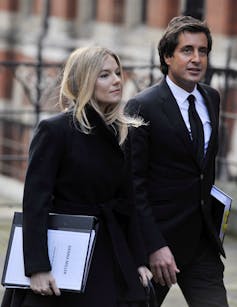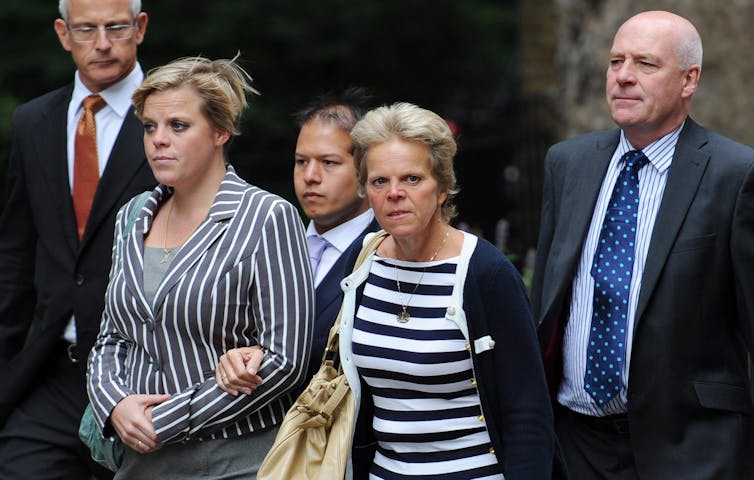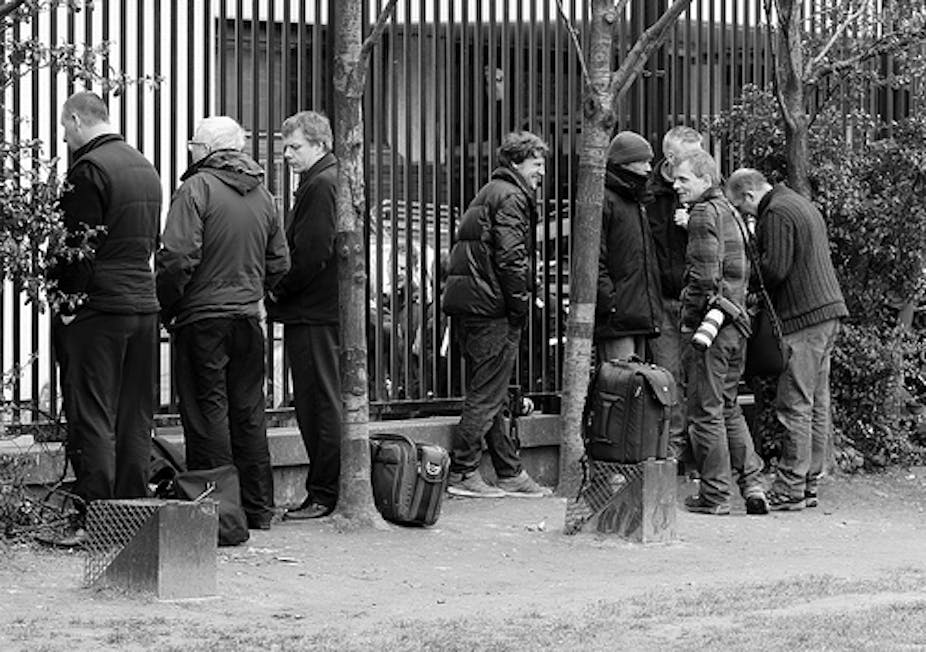As the Leveson inquiry rolls on in London, and one witness after another testifies to the intrusions and violations endured at the hands of the British press, I am reminded once again of the collapse of the Soviet bloc in 1989. For decades, a culture of compliance prevailed around the activities of the ruling communist parties.
Their subject populations suffered in silence at the hands of authoritarian bullies, despite knowing that something was very, very wrong.
Things had always been that way, and always would be, and there was no point in trying to change it. Until there was. Who recalls now what sparked off those velvet revolutions, then the fall of the wall, then the demise of the Soviet Union itself in 1991? No matter.
A monstrous apparatus of fear, bullying and intimidation which had lasted for seventy years suddenly caved in on itself, just like that, its pretensions and lies exposed. The same process is underway in the Arab countries right now.
Who is fair game? Er … everyone
And so with the British press. Always notorious for its irreverence, the British press - and the popular red top press in particular - has pursued a path of relentless exposé, scandal, sensation and titillation, directed not just at the powerful and the famous.
Caught in the sights of the “tabs” are not just the “slebs” who inhabit the public arena and often court publicity as much as they complain about it when the coverage isn’t quite what they wanted, but the ordinary joes and joannas, who happen to have been caught up in some unfortunate events that have become news.
Extra, Extra! Tabloids in privacy invasion shock
Many of those people, celebrity and non-celebrity, have been testifying this week - Sienna Miller, Steve Coogan, JK Rowling, Mr and Mrs Dowler, the McCanns - detailing their pain and anger. their stories are appalling to hear, and the scale of the violations breathtaking.

But the invasions of privacy they describe have been going on routinely in the UK since the 1970s, against a backdrop of occasional criticism from politicians, commentators, some journalists, and media scholars such as myself, but never receiving the mass opprobrium we have seen since the phone-hacking scandal broke in July, leading to the closure of the News Of The World.
That story had been around for years, broken by the Guardian, and few seemed to care, until the particular detail about the Milly Dowler case tipped the balance from tolerance to outrage.
It is as if the great British public, after years of wallowing in the culture of tabloid excess, supporting it indeed with their purchase of millions of copies of the worst offending titles every day of the year, year after year, suddenly woke up to the smell of the dead rat under the sink, and gagged.
You can’t blame “society”
Millions of people didn’t buy red tops, of course, and didn’t take pleasure in their gleeful exposure of things that should have remained private. Nor should we forget that there have been moments in the past forty years where the nation’s patience, provoked by a particular tabloid outrage, seemed to be exhausted. Sun readers in Liverpool boycotted the paper after its offensive coverage of the Hillsborough disaster.
Diana’s death in a paparazzi pursuit unleashed a wave of public grief which for a little while seemed to make the red tops pause and reflect on their ethics. In the 1980s and early 1990s, under the Thatcher government, the British red top press were warned that they were “drinking in the last chance saloon”, and that if they didn’t clean up their act they would face state regulation.
Instead, the ineffective Press Council was abolished and a Press Complaints Commission established, with slightly more powers at its disposal (though still an industry-led self-regulatory body). At the end of his premiership in 2007 Tony Blair described the British press as a “feral beast”, though it was too little and too late to carry much weight.
It’s The Sun wot won it

Blair’s intervention was dismissed by many on the grounds that his government, like the previous Tory governments, was complicit in shoring up UK tabloid culture. New Labour, like the Conservatives under Thatcher and Major, curried favour with the big media companies, and News International in particular.
Both major parties operated on the belief, whether correct or not, that “it’s the Sun wot won it” in UK elections, and that the editorial support of the popular tabloid press was a prerequisite for political success. Neil Kinnock’s principled boycott of News International when he was Labour leader before Blair was viewed by New Labour as a disaster, and from 1994 all the traditionally Tory-supporting titles were courted assiduously, their ethical transgressions glossed over in the pursuit of power.
David Cameron as Tory leader went even further, employing the former editor of the News Of The World, Andy Coulson, as his media director, in opposition and then in government - an aspect of the current scandal which remains deeply embarrassing for the Coalition in the UK.
The Times (and the Sun) they are a'changing
But just as the public appear to have run out of patience with the red top culture of privacy intrusion and personal violation, so have the politicians distanced themselves since July. Labour leader Ed Miliband adopts a very different, much less toadying tone towards the press than either Blair or Brown, and the Tories in office have also sought to shake off the stink of overly intimate association with News International. Whether this approach will survive the next election campaign remains to be seen.
And will the current public revulsion towards the red tops last beyond the current wave of committees, investigations and (to come) trials? We have been here before, remember - Hillsborough, Diana, the last chance saloon. In every case initial public anger dwindled, and business as usual resumed.
This time feels different, it seems to me, just like 1989 in eastern Europe felt different to 1956 and 1968. Maybe it is connected with the global economic downturn and a growing sense of systemic crisis, that patience with big corporations and their hubris is running out.
The late twentieth century British tabloid culture of ethics-be-damned no longer seems so harmless. What we cultural analysts call the “structure of public feeling” about corporate ethics - and this media scandal is about corporate ethics, after all, and what is acceptable in the pursuit of profit and political influence - has shifted. What seemed yesterday to be amusing, if sometimes excessive and distasteful in tabloid culture, today looks obscene and disgusting.
Where to now?
We understand, and always did, that a properly functioning Fourth Estate has the right and the duty to talk truth to power, to scrutinise its use and abuse by authorities and elites on our behalf as citizens.
But no longer, it seems, after forty years of tolerance for what we seemed to be believe was an inevitable and unchanging reality of British press culture, do we accept that phones can be hacked, diaries stolen, police information bought, from either the famous or the ordinary person, just because there is a sensational, scandalous story to be made into news and broadcast to the nation without regard for private lives. No one can say if this is a permanent shift in national mood, but the depth of anger is unprecedented.
Two big issues remain for those who, despite the abuses of that principle now being exposed daily in London, value freedom of the media as an essential component of a healthy democracy.
One - where is the line to be drawn between legitimate investigative journalism, journalism in the public interest (which may sometimes have to push ethical and legal boundaries to access the facts), and journalism which intrudes in and violates privacy merely to generate headlines and profits for a media company?
And two - what is to be done with those media outlets which practice the latter, as News International and other companies have done for so long in the UK? state regulation? Tougher self-regulation by the industry? Consumer boycotts? How can ethical standards in journalism be policed without endangering that precious media freedom?
Brian McNair is the author of News & Journalism In The UK, 5th edition, Routledge, 2009.

